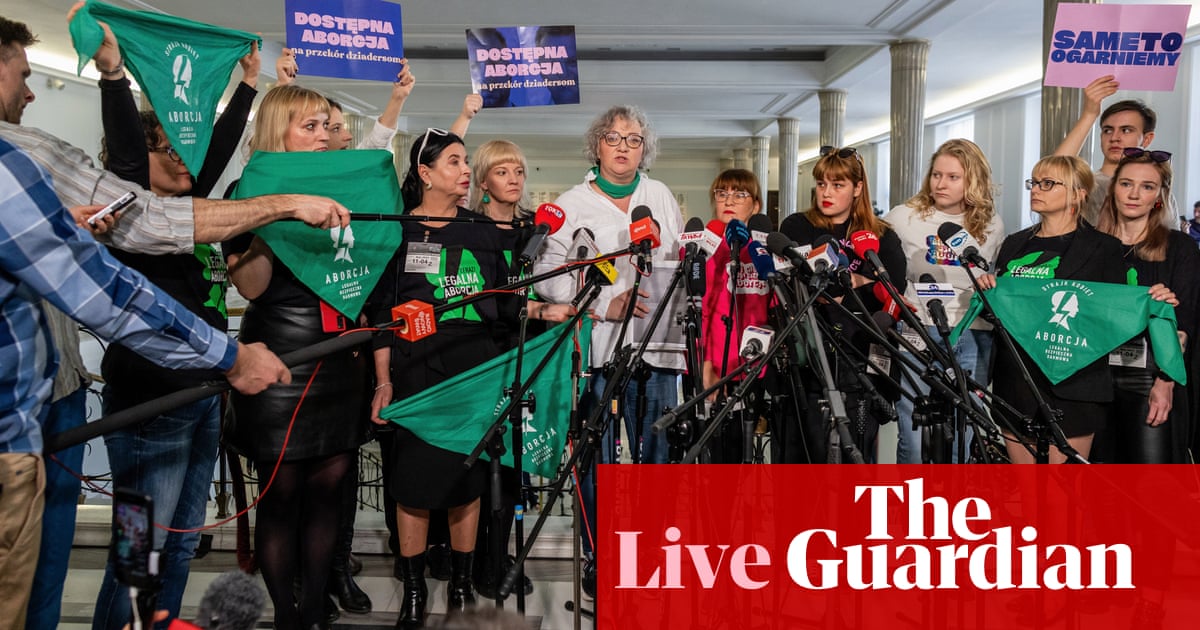
Poland’s rightwing government has delayed implementation of a controversial court ruling that would outlaw almost all abortion after it prompted the largest protests since the fall of communism.
“There is a discussion going on, and it would be good to take some time for dialogue and for finding a new position in this situation, which is difficult and stirs high emotions,” Michał Dworczyk, the head of the prime minister’s office, told Polish media on Tuesday.
The decision by the country’s constitutional tribunal promised to further tighten Poland’s abortion laws, which were already some of the strictest in Europe. The tribunal ruled that terminations should be illegal even in cases where a foetus is diagnosed with a serious and irreversible birth defect. This kind of abortion accounts for almost all of the small number of abortions performed legally in the country.
The decision has still not been published, despite a Monday deadline, and as such has not entered into force. “It’s clearly a political decision,” said Anna Wójcik, a researcher at the law studies institute at the Polish Academy of Sciences. “Judgments are meant to be published with no delay. It’s a legal trick to withhold publishing.”
The tribunal’s decision, which was in response to a challenge from a group of rightwing MPs, has focused anger on the Law and Justice (PiS) party. PiS has ruled Poland since 2015 and has been accused of eroding democratic norms during its time in power, including by packing the constitutional tribunal with its supporters.
The abortion ruling has caused anger beyond the usual groups of PiS opponents, and the scale of the protests appears to have taken the government by surprise. The more extreme wing of the party supports the constitutional ruling, but surveys show that much of the party’s voter base does not support tighter abortion restrictions, so the PiS hierarchy finds itself in a difficult spot.
The prime minister, Mateusz Morawiecki, has called for talks with protesters and opposition MPs, while the PiS-aligned president, Andrzej Duda, suggested a new proposal that would allow abortion in cases of life-threatening birth defects but not for conditions such as Down’s syndrome.
Duda’s proposal is likely to be criticised from both sides – as too weak by the extreme right of the ruling coalition, and as not going far enough by those leading the street protests.
The protesters have ignored a ban on gatherings of more than five people, intended to slow the spread of coronavirus, and have come out in force. More than 100,000 people gathered in the streets of Warsaw on Friday evening for the largest gathering so far. They shouted pro-choice and anti-PiS slogans.
There has also been violence in which far-right groups have attacked protesters, and government figures appeared to stoke the tensions. The PiS leader and deputy prime minister, Jarosław Kaczyński, told people they should “defend churches” from the protesters after some were defaced. Senior figures in the country’s powerful Catholic church have spoken out in favour of the constitutional ruling.












